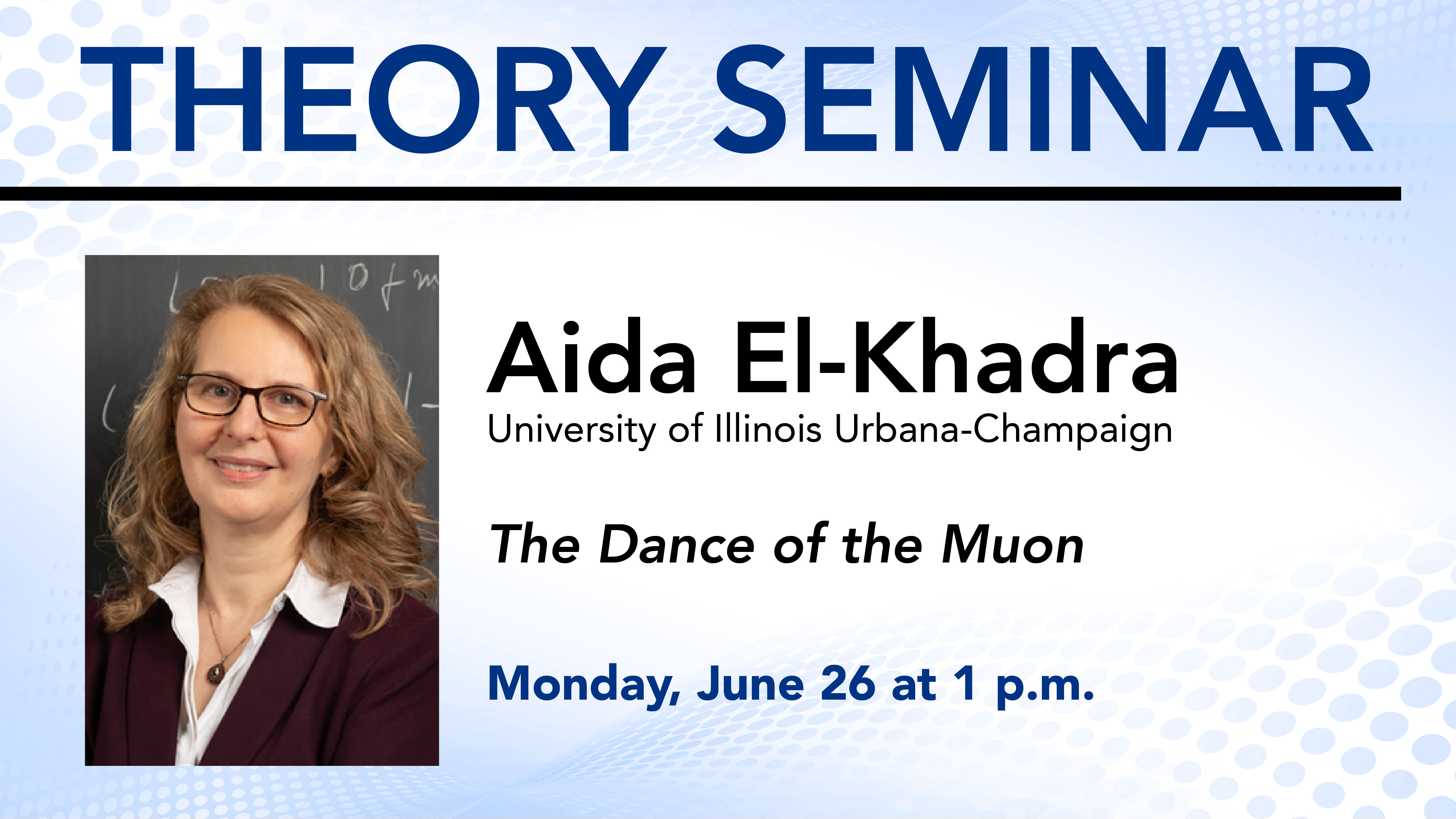Theory Seminar: Aida El-Khadra
- Theory Seminar: Aida El-Khadrahttps://jlab-org.zoomgov.com/j/1610915657?pwd=b3Q3bkMxWlhWd0tYQy8xVVVmUEg4QT09F224-2252023-06-26EDT13:00:00 ~ 2023-06-26EDT14:00:0019389
We kindly ask all attendees to provide their full name when entering the event. If attendees have questions for the speaker, please introduce yourself before asking the question.
Speaker: Aida El-Khadra (University of Illinois Urbana-Champaign)
Title: The Dance of the Muon
Abstract: More than eighty years after the muon was first discovered, it is still a source of mystery. Indeed, experiments are underway or planned that use measurements of the muon's magnetic moment as a window to search for new physics — a central goal towards a deeper understanding of the fundamental particles and their interactions. The current difference between experiment and Standard-Model theory for the anomalous magnetic moment of the muon stands at 4.2 standard deviations. The Fermilab E989 experiment, which released their first measurement result in 2021, and the planned J-PARC E34 experiment aim to reduce the experimental uncertainties by a factor of four. To leverage this anticipated improvement in experimental precision, and determine unambiguously whether or not new-physics effects contribute to this quantity, the theoretical errors must be made more reliable and reduced to a commensurate level. The Muon g-2 Theory Initiative was formed in 2017 to provide platforms that facilitate interactions between the different groups to consolidate the Standard-Model prediction. Recent developments have created several puzzles in the evaluation of the hadronic vacuum polarization contribution, which is the dominant source of theory uncertainty. I will review the current status of Standard Model theory for this quantity and map out the future prospects.

